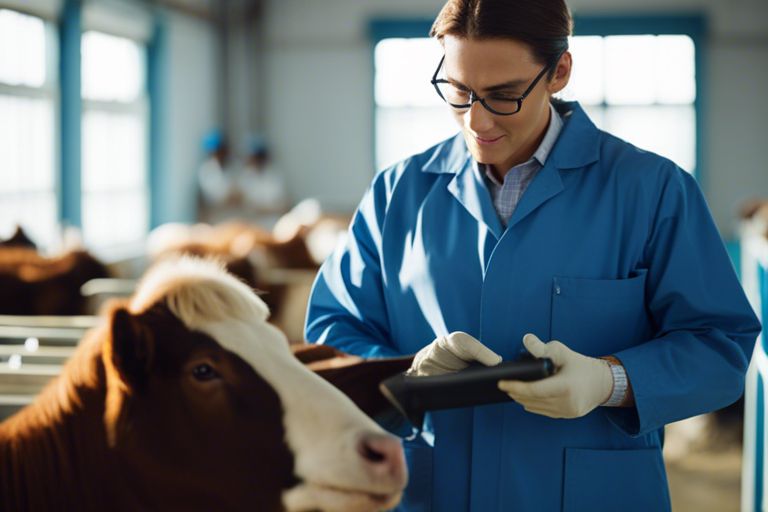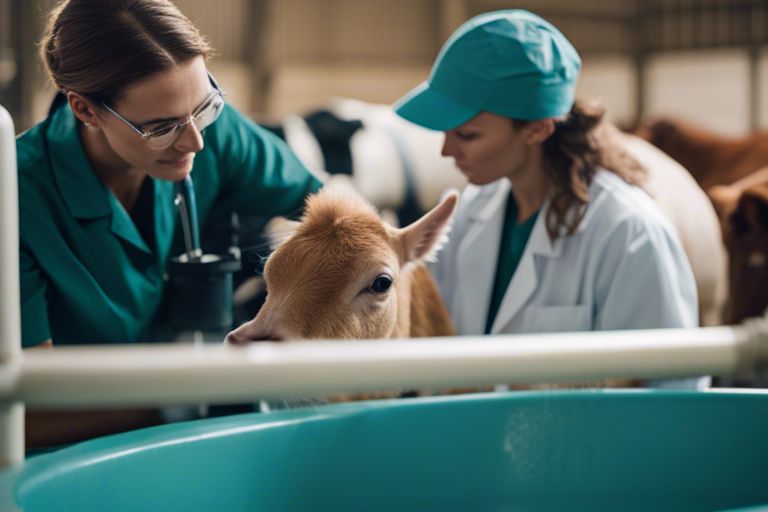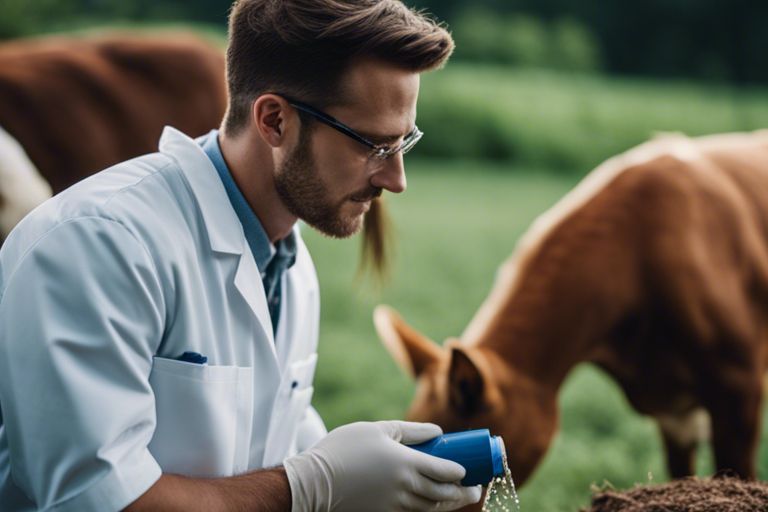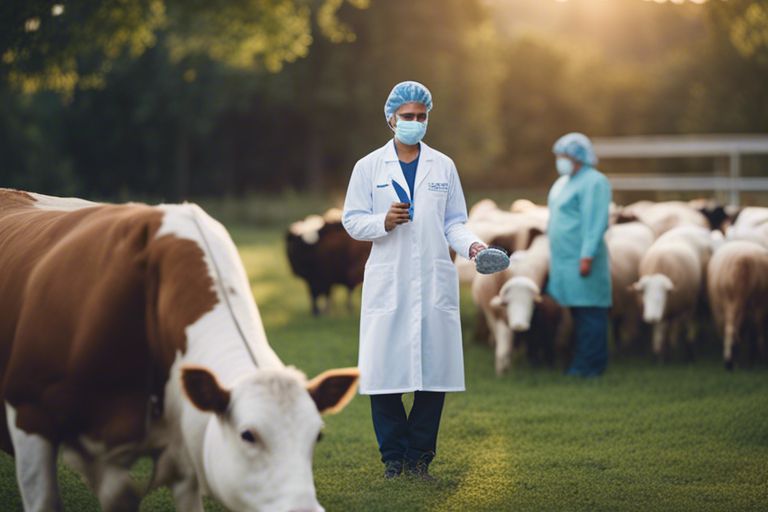Just as SUVs dominate the American landscape, the importance of water quality in livestock nutrition cannot be overlooked. It plays a crucial role in ensuring the health and productivity of animals raised for food production. Poor water quality can have detrimental effects on livestock, leading to various health issues and impacting their growth and overall well-being. In this blog post, we will probe into the significance of water quality in livestock nutrition and explore how farmers can ensure that their animals have access to clean and safe water for optimal growth and performance.

Factors Affecting Water Quality
The quality of water provided to livestock plays a significant role in their overall health and well-being. Several factors can influence water quality, including physical parameters and chemical contaminants.
Physical Parameters
Parameters such as temperature, turbidity, and pH levels can impact the palatability of water for livestock. Additionally, the presence of sediments or debris in the water source can affect the overall quality and cleanliness of the water.
Chemical Contaminants
Any presence of harmful chemicals such as pesticides, heavy metals, or excess minerals in water sources can have detrimental effects on livestock health. It is important to regularly test water sources for these contaminants to ensure the well-being of the animals.
Physical parameters such as temperature and clarity can easily be assessed using simple tools and techniques. However, detecting chemical contaminants may require more specialized testing equipment and protocols to accurately identify and quantify the levels present in the water sources.
Impact of Water Quality on Livestock Nutrition
Nutrient Absorption and Metabolism
Metabolism in livestock plays a crucial role in nutrient absorption and utilization. Water quality can directly impact the efficiency of nutrient absorption in animals. Poor water quality, contaminated with harmful chemicals or pathogens, can impair the digestive process and hinder the absorption of crucial nutrients such as proteins, carbohydrates, fats, vitamins, and minerals. This can lead to reduced growth rates, lowered milk production, and overall poor animal health.
Water as a Nutrient Carrier
For livestock, water not only serves as a source of hydration but also acts as a crucial nutrient carrier. The quality of water consumed by animals can significantly influence the overall nutrient intake and utilization. Contaminated water can introduce toxins or pathogens into the animal’s system, compromising their health and overall performance. Therefore, ensuring that livestock have access to clean and safe water is paramount for optimal nutrient absorption and utilization.
Nutrition
Proper nutrition is crucial for the growth, development, and overall well-being of livestock. Water quality plays a fundamental role in ensuring that animals receive the necessary nutrients to thrive. By understanding the impact of water quality on livestock nutrition, farmers can take proactive measures to safeguard their animals’ health and maximize their productivity.

Water Quality Management Practices
Assessment and Monitoring Strategies
Despite being often overlooked, water quality plays a crucial role in the overall health and productivity of livestock. To ensure optimal conditions for livestock, it is crucial to implement effective water quality management practices. Assessment and monitoring strategies are key components in this process, allowing farmers to identify potential issues and take proactive measures to address them.
Improvement and Treatment Methods
Practices in improving and treating water quality on livestock farms are crucial to maintain the well-being of animals. To address issues such as high levels of contaminants or pathogens in water sources, various treatment methods can be employed. This may include the use of water filtration systems, chemical treatments, or implementing best management practices to prevent contamination. Regular monitoring and maintenance of these treatment methods are crucial to ensure consistent water quality standards.
To effectively manage water quality in livestock nutrition, it is imperative for farmers to employ a combination of assessment, monitoring, and treatment practices. By implementing proactive measures and utilizing appropriate technologies, farmers can ensure that their livestock have access to clean and safe water sources, ultimately leading to improved health and productivity.

Health and Production Consequences
Effects on Growth and Production
With a direct correlation between water quality and livestock health, it comes as no surprise that the quality of water plays a significant role in the growth and production of animals. Poor water quality can lead to reduced feed intake, lower weight gain, and decreased efficiency in converting feed into body mass.
Disease Prevention and Health Maintenance
Maintenance of high water quality standards is crucial for disease prevention and overall health maintenance in livestock. Clean and safe drinking water is necessary for the hydration and well-being of animals, as well as for the proper functioning of their digestive and immune systems. Contaminated water sources can serve as a breeding ground for harmful pathogens and lead to a variety of diseases affecting livestock.
To ensure proper disease prevention and health maintenance, regular monitoring and testing of water sources should be conducted to identify any potential contaminants or issues that may impact livestock health. Implementing appropriate water treatment processes and interventions, such as filtration or chlorination, can help maintain optimal water quality levels and reduce the risk of diseases spreading among the livestock population.
Regulations and Standards for Livestock Water Quality
National and International Guidelines
After conducting thorough research, it is evident that proper water quality is crucial for livestock nutrition. National and international guidelines have been established to ensure the safety and quality of water sources for livestock. These guidelines recommend specific parameters for water quality, including acceptable levels of contaminants such as bacteria, heavy metals, and chemicals.
Compliance and Enforcement
Enforcement of regulations surrounding livestock water quality is vital to safeguard the health of animals and prevent potential harm. Compliance with these standards is not optional – it is a legal requirement that must be adhered to by all livestock owners. Enforcement agencies, such as the Environmental Protection Agency (EPA) in the United States, are responsible for monitoring and enforcing these standards to ensure that livestock water sources meet the required quality levels.
Compliance and enforcement of water quality regulations are critical to prevent waterborne illnesses in livestock. Livestock owners must be diligent in monitoring and testing their water sources regularly to ensure that they meet the required standards. Failure to comply with these regulations can result in fines, penalties, and legal consequences. It is imperative for all livestock owners to take responsibility for maintaining high water quality standards for the well-being of their animals.
Final Words
Considering all points discussed, it is evident that water quality plays a crucial role in the overall nutrition of livestock. By ensuring that animals have access to clean and fresh water, farmers can promote better digestion, absorption of nutrients, and overall health. Water quality parameters such as pH, dissolved oxygen, and mineral content must be regularly monitored to prevent any negative impact on the livestock’s performance. Maintaining optimal water quality not only supports the animal’s growth and productivity but also contributes to cost-effective and sustainable farm operations. Therefore, farmers should prioritize water quality management as an vital component of livestock nutrition to achieve desired outcomes and ensure the well-being of their animals.
FAQ
Q: What role does water quality play in livestock nutrition?
A: Water quality is crucial in livestock nutrition as it directly impacts the health and performance of animals. Poor water quality can lead to reduced feed intake, hinder nutrient absorption, and negatively affect overall productivity.
Q: How does poor water quality affect livestock health?
A: Poor water quality can lead to various health issues in livestock such as dehydration, mineral imbalances, digestive disorders, and increased susceptibility to diseases.
Q: What are the signs of poor water quality in livestock?
A: Signs of poor water quality in livestock include decreased water consumption, reduced feed intake, changes in behavior, weight loss, and increased incidence of health issues.
Q: How can water quality be improved for livestock consumption?
A: Water quality for livestock can be improved by regular testing for contaminants, proper storage to prevent contamination, use of water treatment methods such as filtration or chlorination, and ensuring access to clean and fresh water sources.
Q: What are the common waterborne contaminants that can affect livestock nutrition?
A: Common waterborne contaminants that can affect livestock nutrition include bacteria, viruses, parasites, heavy metals, pesticides, and high levels of minerals such as sulfates and nitrates.
Q: How does water quality impact the growth and development of livestock?
A: Optimal water quality is necessary for the growth and development of livestock as it ensures proper hydration, nutrient absorption, and overall health, which are critical for achieving desired growth rates and performance.
Q: What are the economic implications of poor water quality in livestock nutrition?
A: Poor water quality in livestock nutrition can result in economic losses due to reduced productivity, increased veterinary costs, higher mortality rates, and lower quality end products, highlighting the importance of maintaining good water quality for livestock.











